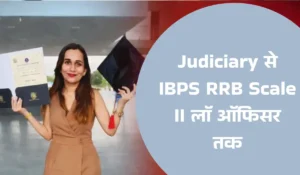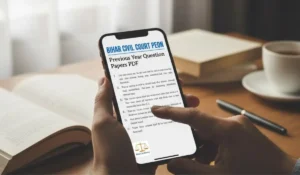Directions (1-10): Read each sentence to find out whether there is any grammatical or idiomatic error in it. The error, if any, will be in one part of the sentence. The number of that part is the answer. If there is ‘No error’, the answer is (e). (Ignore errors of punctuation, if any.)
Q1. If you do not (a) / submit the report (b) / in the next two days (c) / all of us will be punished. (d) / No Error. (e)
(a) A
(b) B
(c) C
(d) D
(e) E
Q2. These days Ashok along with (a) / his friends does not go (b) / to a walk (c) / in the morning. (d) / No Error. (e)
(a) A
(b) B
(c) C
(d) D
(e) E
Q3. I have been visiting your office (a) / since last several years (b) / but have never met (c) / such a hopeless clerk as this. (d) / No Error. (e)
(a) A
(b) B
(c) C
(d) D
(e) E
Q4. As there was no time (a) / the remaining items (b) / were deferred into (c) / the next meeting. (d) / No Error. (e)
(a) A
(b) B
(c) C
(d) D
(e) E
Q5. We demonstrated (a) / to them how (b) / we were prepared (c) / the artistic pattern. (d) / No Error. (e)
(a) A
(b) B
(c) C
(d) D
(e) E
Q6. She had offered (a) / a temporary assignment but (b) / she turned it down saying that (c) / she would accept only a permanent one. (d) / No Error. (e)
(a) A
(b) B
(c) C
(d) D
(e) E
Q7. All the parties (a) / whose presidents were asked to resign (b) / were involved in (c) / anti-national activities. (d) / No Error. (e)
(a) A
(b) B
(c) C
(d) D
(e) E
Q8. Mahesh who was (a) / junior in most (b) / other employees in his office (c) / has been promoted. (d) / No Error. (e)
(a) A
(b) B
(c) C
(d) D
(e) E
Q9. What should we do (a) / is a matter of (b) / our own choice (c) / and desire. (d) / No Error. (e)
(a) A
(b) B
(c) C
(d) D
(e) E
Q10. You cannot withdraw (a) / all your money (b) / unless you do not (c) / give a prior notice. (d) / No Error. (e)
(a) A
(b) B
(c) C
(d) D
(e) E
Directions (11-15): In each of the following sentences, an idiomatic expression or a proverb is highlighted. Select the alternative which best describes its use in the sentence.
Q11. He resigned the post of his own accord.
(a) which he liked
(b) according to his convenience
(c) voluntarily and willingly
(d) according to his judgement
(e) None of these
Q12. As a politician he is used to being in the limelight all the time.
(a) giving speeches
(b) the object of admiration
(c) the centre of attraction
(d) an object of public notice
(e) None of these
Q13. I ran out of money on my European tour.
(a) exhausted my stock of
(b) did not have enough
(c) lost
(d) carried a lot
(e) None of these
Q14. Madhuri might scream blue murder, but I feel Deepali should get the promotion since she is better qualified for the job.
(a) someone has been murdered with some blue liquid
(b) someone is being murdered and has become blue
(c) suffer from persecution complex
(d) make a great deal of noise and object vehemently
(e) None of these
Q15. In modern democratic societies lynch law seems to have become the spheres of life.
(a) law of the mob
(b) law of the underworld
(c) law of the constitution
(d) law of the parliament
(e) None of these
Practice More Questions of English for Competitive Exams:
Solutions
S1. Ans. (c)
Sol. ‘within’ will be used in place of ‘in’ because as there are two different meanings when ‘in’ and ‘within’ are used for ‘period of time’.
He will return in (= at a close of) a week’s time.
He will return within (= in less than) a fortnight.
S2. Ans. (c)
Sol. ‘for a walk’ will be used in place of ‘to a walk’ because ‘go for a walk’ is used.
Ex. I go for a walk early in the morning.
S3. Ans. (b)
Sol. ‘for the last several years’ is used in place of ‘since the last several years’ as ‘last’ is an ordinal adjective before which ‘the’ is used and ‘the last several years’ is a ‘period of time’ before which ‘for’ is used.
Ex. I have been working here for the last several years.
S4. Ans. (c)
Sol. ‘for’ will be used in place of ‘into’ as ‘defer’ means ‘delay something until a later time’, after which ‘for’ is used.
Ex. Let’s defer the decision for a few weeks.
S5. Ans. (c)
Sol. ‘we prepared’ will be used in place of ‘we were prepared’ as active voice will be used in part (c) of the sentence.
S6. Ans. (a)
Sol. ‘she had been offered’ will be used in place of ‘she had offered’ as passive voice will be used in sentence (a) of the sentence.
S7. Ans. (e)
Sol. The sentence is grammatically correct.
S8. Ans. (b)
Sol. ‘to’ will be used in place of ‘in’ as preposition ‘to’ is used after ‘junior, senior, inferior, superior, prior, anterior etc.
Ex. She is junior to me.
S9. Ans. (a)
Sol. ‘what we should do’ will be used in place of ‘what should we do’ as the sentence is ‘affirmative’ not interrogative.
S10. Ans. (c)
Sol. ‘unless you’ will be used in place of ‘unless you do not’ as clauses starting with ‘unless/ until/ lest’, ‘not’ is not used for making them ‘negative’.
Ex. I cannot do anything for her unless she comes here.
S11. Ans.(c)
Sol. Of his own (one’s) accord means voluntarily; of one’s own free will.
S12. Ans.(c)
Sol. In the limelight means at the center of public attention or notoriety.
S13. Ans.(a)
Sol. I ran out of to finish, use, or sell all of something, so that there is none left:
S14. Ans.(d)
Sol. scream blue murder means make an extravagant and noisy protest.
S15. Ans.(a)
Sol. Lynch law means the punishment of supposed criminals, especially by hanging, by agreement of a crowd and without a genuine criminal trial.
Practice with Crash Course and Online Test Series for IBPS Clerk Prelims:
- Bank Test Pack Online Test Series (12 Months)
- IBPS Clerk Prime Online Test Series 2020 by Adda247
- IBPS Clerk 2020 Online Coaching for Clerk Prelims | Complete Bilingual Batch by Adda247




 Judiciary से झटका, IBPS RRB Scale II लॉ ...
Judiciary से झटका, IBPS RRB Scale II लॉ ...
 Bihar Civil Court Peon Previous Year Que...
Bihar Civil Court Peon Previous Year Que...
 UPSC CSE समेत 7 बड़ी भर्तियों की आवेदन व...
UPSC CSE समेत 7 बड़ी भर्तियों की आवेदन व...










